The FSOLab on the alignment of national and transnational research programs was successfully launched!
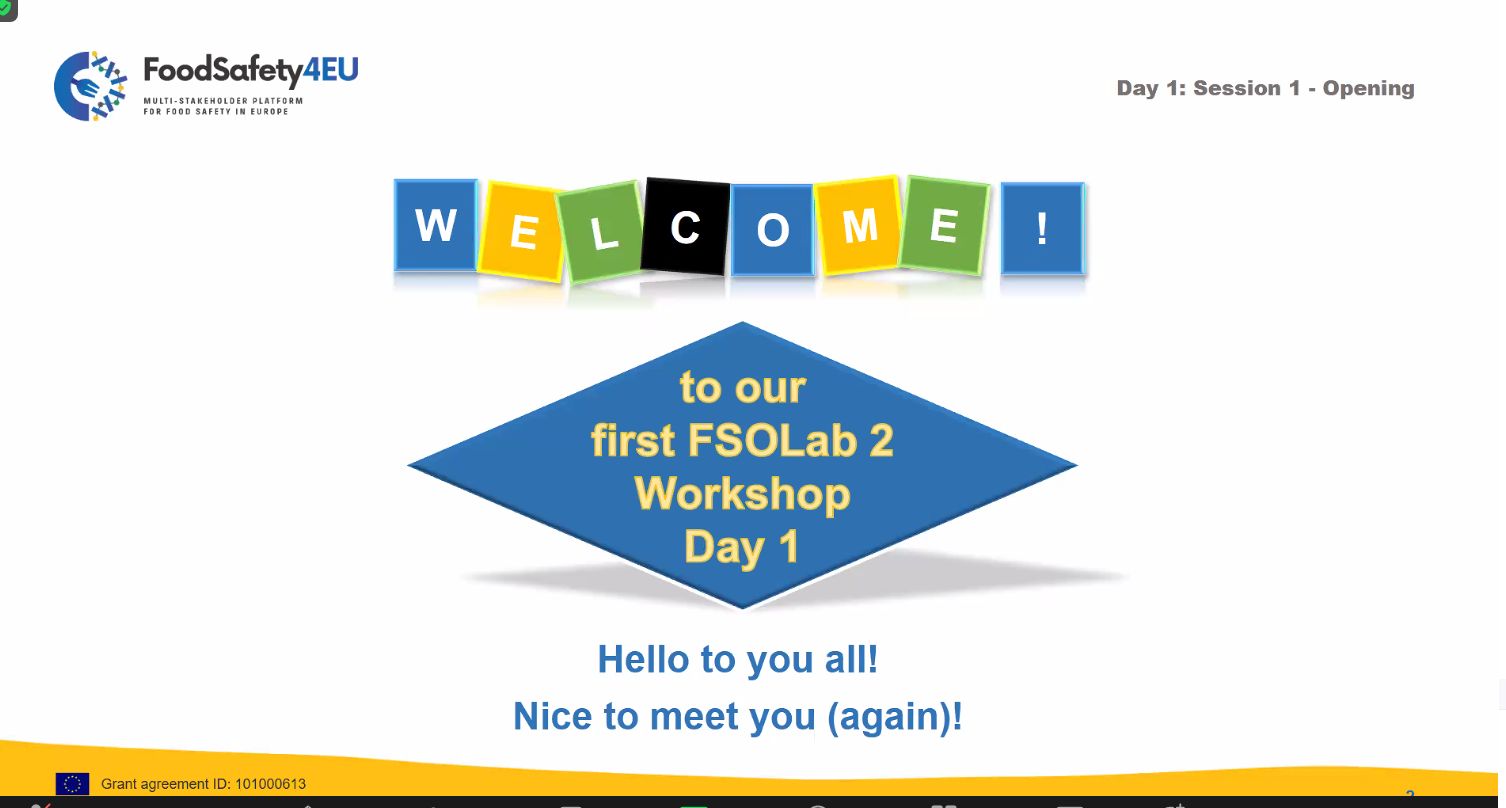
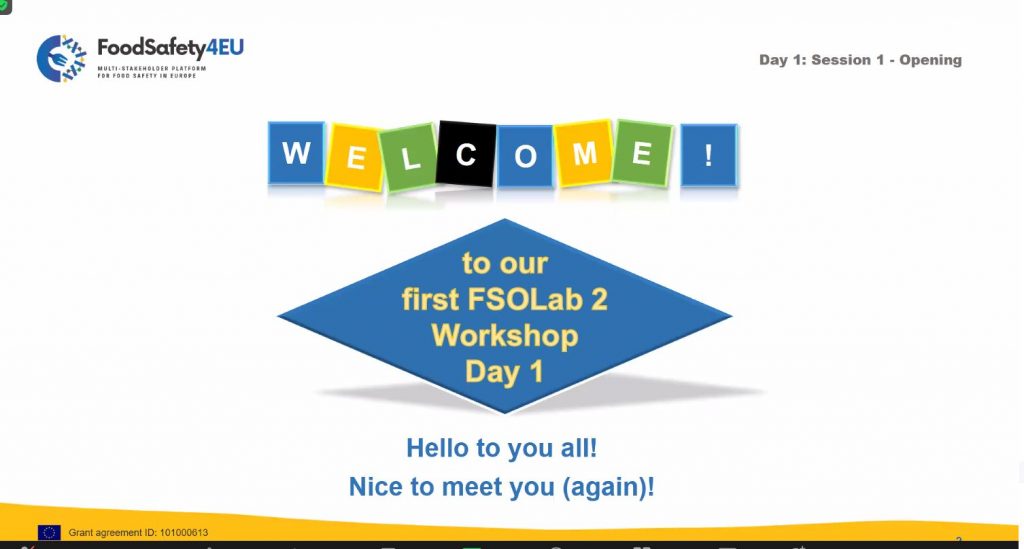
On July 2021, the Food Safety Operational Lab 2 (FSOLab 2) kicked off, involving 23 participants from 12 nations across different business sectors (e.g., research, industry/companies, academia, Food Safety Authorities, Consumer advocates, Action Networks, Technology & Communication Services) and covering a wide range of expertise.
The FSOLab 2 is under the management of Prof. Dr. Michael Rychlik & Dr. Tamara Stelzl, both from Technical University of Munich (TUM, Germany), supported by Dr. Claudia Iasillo from the Agency for Promotion of European Research (APRE, Italy) as Lab Moderator/Facilitator.
Starting with a 2-hours orientation session, FSOLab 2 participants were given an in-depth introduction to the topic of FSOLab 2, which revolves around research programs and funding opportunities in the EU Member States and Associated Countries. FSOLab 2 strives to better align national and transnational research programs by ensuring broad and balanced access to Food Safety funding across the EU Member States while identifying and addressing related challenges and gaps.
Why is the topic of FSOLab 2 of importance?
It is well known that there exist large differences and inequalities in the distribution of economic resources and research funds among individual countries, both within and outside the European Union. This can have major implications for a country’s performance in a particular discipline such as Food Safety. As well, it can have far-reaching effects on other countries and societies within Europe, potentially hindering scientific progress and innovation. Inadequate financial support for R&D activities is also recognized to weaken the overall quality and competitiveness of national research and to have a long-term negative impact on a country’s economy. Against this background, it is important to address existing problems related to research funding in order to move Europe forward, particularly in the area of Food Safety, and to strengthen public confidence and public health on a sustained level.
Like each of the four FSOLabs conducted within the framework of the FS4EU project, FSOLab 2 applies a “Social Lab” approach and targets a specific Food Safety issue, as described above. In general, Social Labs are aimed at addressing complex societal challenges with the involvement of various experts and stakeholders. FSOLabs provide space for practical experimentationin a real-world setting without following standardized planning guidelines and without knowing exactly how to proceed.Social Labs can be understood as a continuous process and a living system that habitually operate in learning cycles. In other words, based on the data collected during the execution of an experiment, called a “pilot action”, pilot ideas are tested, refined, and constantly progressed, to be tested over and over again.
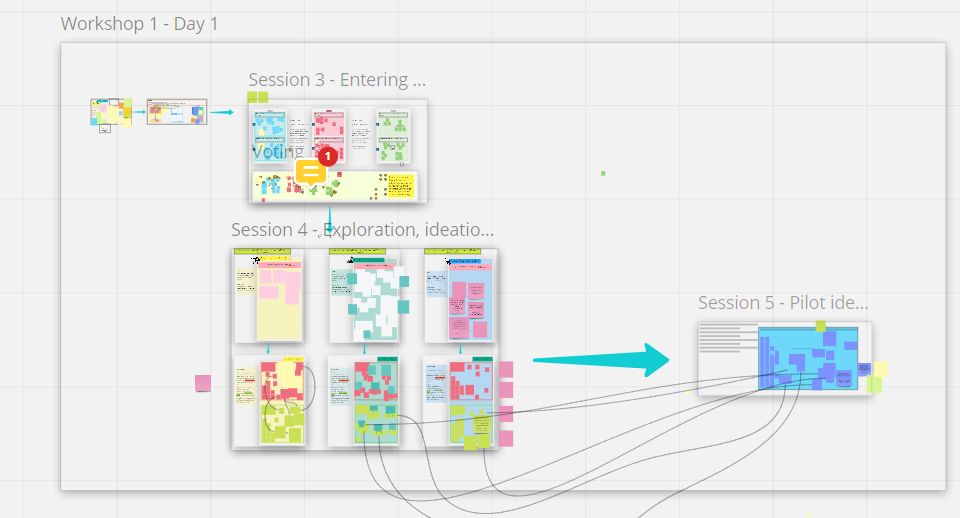
On July 27th and 28th, 2021, the time had come to start the adventure of FSOLab 2 with great enthusiasm and also some curiosity. As a part of a two-day interactive workshop, the central theme of FSOLab 2 has been brought to life, by developing and drawing up concrete plans for possible pilot actions within the team of 23 FSOLab 2 participants. Everybody was very respectful of one another and highly committed. Opinions have been exchanged, viewpoints discussed, detailed pilot plans drafted “until heads were smoking”. Finally, a clear vision for piloting came into view. Under the umbrella theme “Alignment of European Food Safety Research by simplification of funding processes”, the following three pilot actions have been identified and more precisely elaborated:
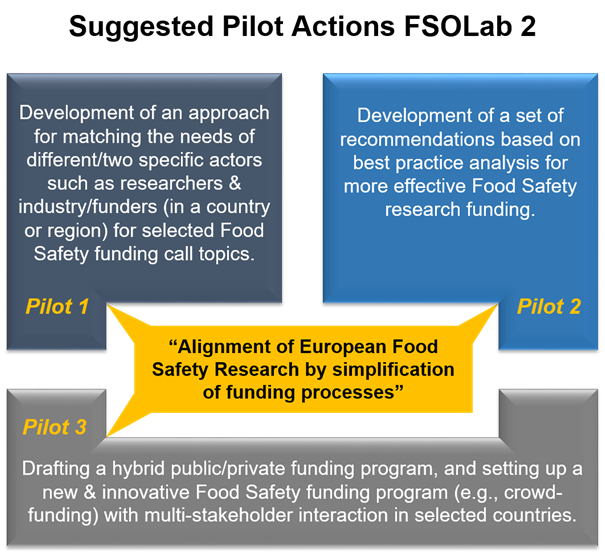
Pilot Action No. 1:
Development of an approach for matching the needs of different/two specific actors such as researchers & industry/funders (in a country or region) for selected Food Safety funding call topics.
Pilot Action No. 2:
Development of a set of recommendations (e.g., policy paper) based on a best practice analysis for more effective Food Safety research funding. As a baseline, countries with a “less mature” Food Safety funding system shall be compared to “more” developed countries allowing beneficial practices to be communicated and transferred from one country (or region) to another.
Pilot Action No. 3:
Drafting a hybrid public/private funding program, with the intention of setting up a new & innovative Food Safety funding program (e.g. crowdfunding) with multi-stakeholder interaction in selected countries.
As a next step, the proposed FSOLab 2 pilot actions undergo a peer review by external evaluators and experts and based on their feedback, one particular of the three pilot actions will be selected. In addition to the experts’ judgment, several other criteria such as feasibility, time and costs, etc., will be weighted into the final decision.
Even though FSOLab 2 is still at the very beginning of its pilot, the first workshop has brought us a bit closer to the overall FSOLab goal, leaving us eager to see where the journey will take us!
Tamara Stelzl, Technical University of Munich (TUM)
Latest Articles
hahah
nana
Food4Future_cz

New Tools for Preventing Harmful Bacteria in Ready-to-Eat Foods

Should we be worried about genetically modified food?
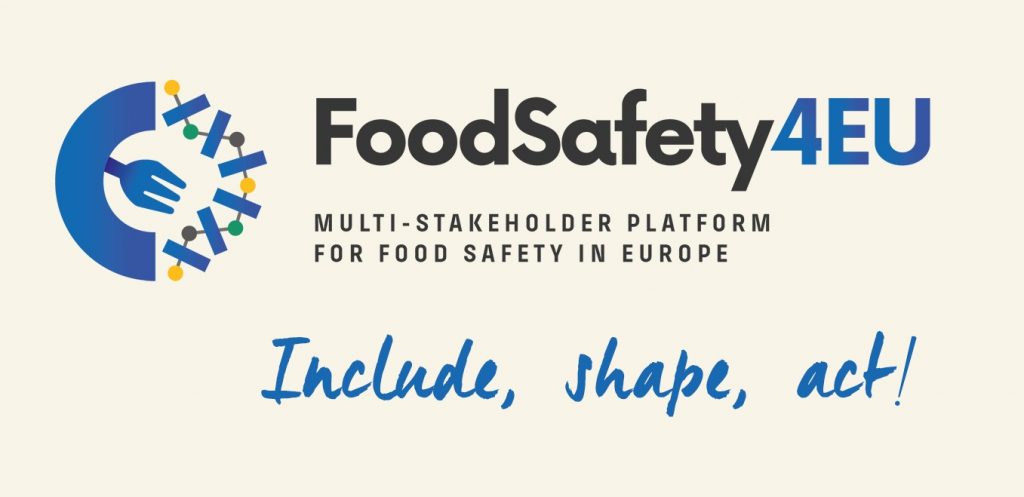
Pooling Stakeholders and Resources for shaping the Food Safety System in Europe
Most Interesting Articles

FoodSafety4EU PRE-FORUM 2022 – “The new sustainability regulation: how to integrate it into food safety?”

BiOrangePack Project: Smart and innovative packaging, post- harvest rot management and shipping of organic citrus fruit

EU GREEN WEEK – How can we communicate food safety in the context of sustainable food systems?
